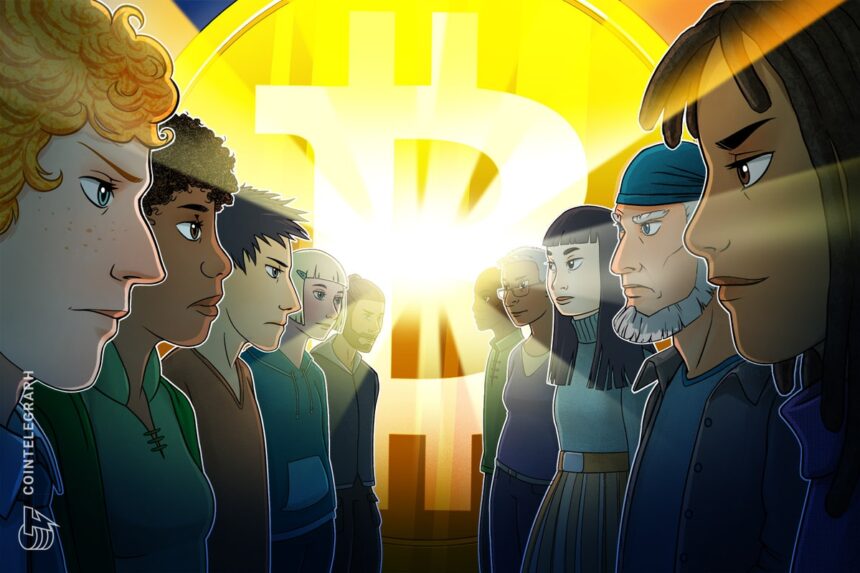The anticipated release of Bitcoin Core v30 this October has reignited longstanding disputes within the Bitcoin community, drawing clear lines between factions advocating for a fee-driven, neutral network and purists who view non-financial transactions as detrimental spam. A key feature of this upgrade is the removal of the 80-byte cap on OP_RETURN, allowing users to embed arbitrary data in transaction scripts.
Bitcoin Core, the essential software for the Bitcoin network maintained by a collaborative team of developers, is the reference implementation widely adopted by miners and node operators. While alternative clients such as Bitcoin Knots are available, Bitcoin Core remains integral to the network’s function.
At first glance, the debate appears to center on the role of Bitcoin’s blockchain—whether it should exclusively facilitate financial transactions or be open for broader applications. However, the conflict also delves into deeper ideological rifts, with some community members accusing Bitcoin Core maintainers of straying from foundational principles and yielding to external influences.
Critics of Bitcoin Core v30 highlight the dangers that could arise from removing the OP_RETURN cap, warning of potential spam and increased resource consumption as non-monetary transactions begin to dominate the blockchain. They assert that larger OP_RETURN sizes could drown out payment transactions and heighten the operational burdens on nodes.
Proponents of a strict monetary use case, represented by Bitcoin Knots, advocate for stricter relay policies that limit what can be embedded in a block. This client, meticulously maintained by Luke Dashjr, aims to restrict non-financial data in a bid to maintain the integrity of the Bitcoin payment network.
Core developers defending the OP_RETURN cap removal argue that the modifications are not motivated by an interest in transforming the blockchain into a data hosting service. Gloria Zhao, a Bitcoin Core maintainer, pointed out that the existing practices naturally bloat the Unspent Transaction Output (UTXO) set, resulting in long-term costs for the network. She emphasized that OP_RETURN offers a more manageable solution, as its data can be pruned or removed.
Opponents argue that eliminating the OP_RETURN cap poses risks of enabling illicit content to be permanently inscribed on the blockchain. This alarming potential, such as the risk of child sexual abuse material being recorded, fuels heated discussions about the implications of the upgrade. Bitcoin developer Jimmy Song challenged this perspective, asserting that data inscribed within Bitcoin is not easily accessible and highlighting that the software itself does not engage with any objectionable content in a manner that implicates operators in wrongdoing.
Beyond technical challenges, the upgrade has ignited political debates regarding Bitcoin Core’s independence. Critics suggest that developers are catering to external ventures like layer-2 projects, hinting that the change aligns with the needs of these projects that require embedding more substantial data payloads for their validity proofs.
Supporters of Bitcoin Knots raise concerns about the potential normalization of non-financial transactions, alleging that this will pave the way for non-fungible tokens and similar innovations. Yet, Bitcoin Core developers refute accusations of corporate influence, insisting that their decision-making process is transparent and collaborative. They view the upgrade as an opportunity to allow market forces to dictate the usage of blockspace, promoting a neutral system without heavy restrictions.
With the release of v30 on the horizon, node operators, miners, and businesses are pondering whether to adopt the new version or maintain their current configurations. This choice, replicated across thousands of machines worldwide, will significantly influence not only the fate of the OP_RETURN cap but also Bitcoin’s identity regarding neutrality, independence, and its future vision.
As community divisions deepen, the number of Bitcoin Knots nodes has surged from approximately 400 to over 4,700, highlighting a growing faction dissatisfied with Bitcoin Core’s trajectory. With nearly 22,500 public nodes operational on the Bitcoin network, the implications of the v30 upgrade are set to reverberate throughout the community, prompting reflections on Bitcoin’s foundational principles and its path forward amidst competing ideologies.







